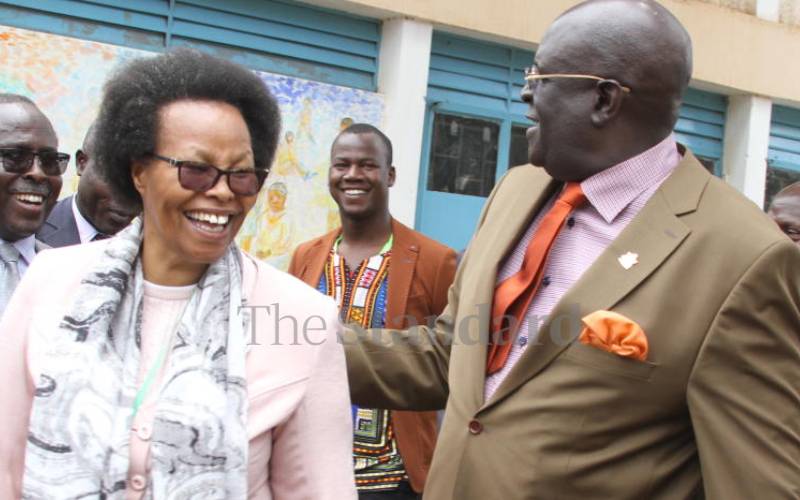×
The Standard e-Paper
Join Thousands Daily

Education CS George Magoha (right) with former KNEC CEO Mercy Karogo at Ayany Estate Primary School, Kibra, Nairobi, 2019. [David Njaaga, Standard]
A few years back, national examination papers were being discretely hawked on the streets, with millions of shillings changing hands under a well-established criminal network.